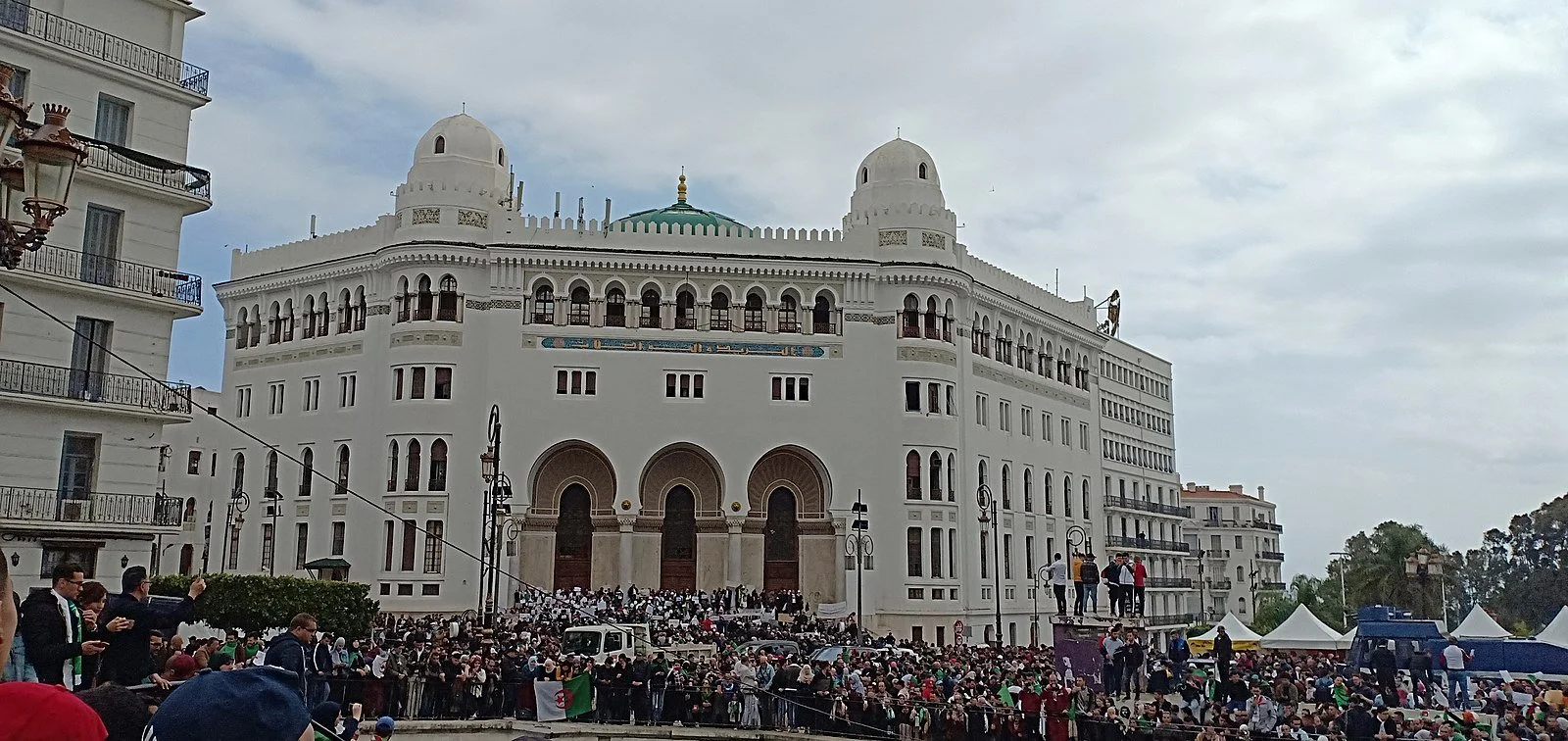Algerian Protests Resume
A 2019 protest in Algiers, Algeria. (Wikimedia Commons)
Protestors in Algeria took to the streets on February 22, marking the second anniversary of the Hirak movement, which has sought a better future for Algeria. Demonstrations had previously taken place every Tuesday and Friday in major cities across the country, beginning in February 2019. However, COVID-19 restrictions have kept protestors off the streets since March 2020.
The Situation in Algeria
The protests find their roots in the 1990s, a “Black Decade” that continues to haunt Algeria. Following elections in the first few years of the decade, the military initiated a violent civil war against the opposition Islamist parties, leading to around 200,000 deaths. According to the Atlantic Council, the brutal repression by the governing class enabled them to enrich themselves off of the oil and natural gas reserves of Algeria while largely neglecting the still-recovering population and economy.
Algerian President Abdelaziz Bouteflika, who held office from 1999 until his resignation in 2019, personified these elites. Though Bouteflika largely avoided fallout from the Arab Spring, Algerians had had enough.
The First Wave
At this point, Algerians initiated the Hirak, literally The Movement, with a slogan of “They all must go.” Summed up by leading activist Karim Tabbou, the Hirak “hope[s] to build a new Algeria: [with] human rights, freedoms and the rule of law.” Demonstrators initially saw great success, most notably securing the resignation of Bouteflika within two months. Moreover, the movement united Algerians from all over the country and combined the interests of secular and Islamist political parties.
However, the Hirak quickly encountered problems, specifically the military forcing through the election of former Algerian Prime Minister Abdelmajid Tebboune to the presidency. After assuming office, Tebboune quickly began to consolidate power. While repression was not as common as it had been in the months preceding the election, the COVID-19 pandemic decisively gave the advantage back to the government and took it away from the Hirak.
An Uncertain Future
Echoing Tabbou’s desires, Tebboune has called for a “New Algeria.” However, instead of getting them all to go, Tebboune began enacting COVID-19 security laws, including the banning of marches starting March 17, 2020. Amnesty International has reported that the government, under the guise of having violated “fake news” laws and stay-at-home orders, prosecuted several activists who criticized Algeria’s response to the virus. These restrictions were incredibly unpopular, leading many to believe that the government had overblown or even made up the virus in order to control the populace.
Tebboune, now 72, called for a new round of national elections in the days leading up to the current protests, and he has reshuffled his cabinet. Furthermore, he has announced presidential pardons for around 60 Hirak members and praised the “blessed Hirak” who “saved Algeria.”
While the actual protests of February 22 occurred on a smaller scale than the previous marches, they still serve a symbolic role in the continuation of the Hirak. In this time of change, distrust in the government remains; as activist Zaki Hannache puts it, “The reshuffle doesn't interest me, it’s the same old people. Same thing with parliament, the new ones will work, like the current regime, for their own interests, not for the people.”

